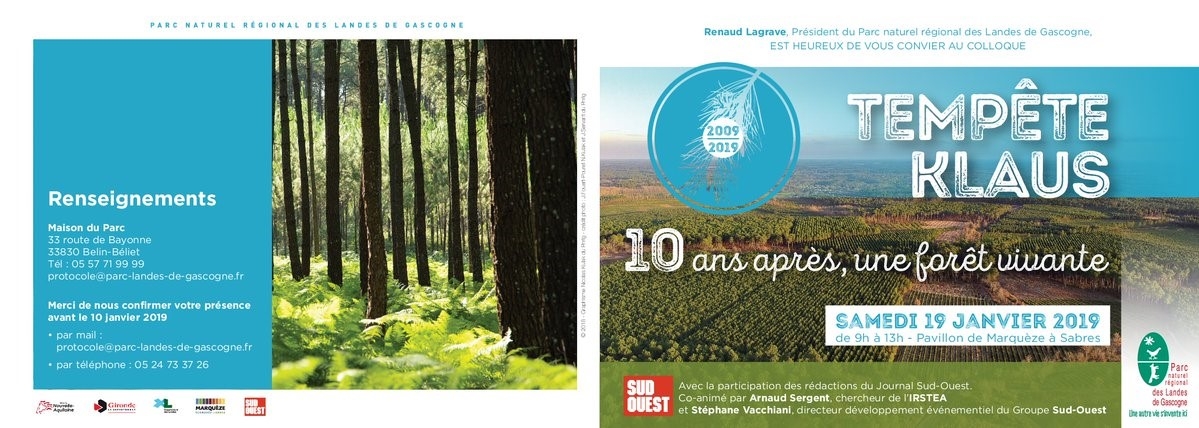PLURIFOR: A project for the future of our forests
On the occasion of the 10th anniversary of Klaus Storm, EFIPLANT participated at the annual forest conference organised by the Regional Natural Park of the Landes de Gascogne at the emblematic Ecomuseum of Marquèze on the 19th January 2019. The meeting - aimed to addressed the post-storm reforestation and forest management services developed in the last years in the affected area-, was the occasion to explain how the project PLURIFOR is promoting innovation tools for the future management of our planted forests.
Taking the example of the Klaus storm, which destroyed 230 000 hectares in the Southwest France, Christophe Orazio (EFIPLANT) explained to a huge audience composed of officials, forest professionals and local development actors, how the PLURIFOR project –recently labelled by the XYLOFUTUR pole- focuses on forest risk prevention plans and in particular on abiotic risks such as storm, fire and soil degradation, but also on biotic risks already present (fusarium, pine nematode, chestnut galls and eucalyptus weevil) and those not present yet.
During the session entitled “Reduction of hazards in the forests of South West Europe”, Orazio clarified that all these tools and proposals for plans or technical guides developed by the project are available online and, so, available for everybody. The project platform also provides with a forum in 4 languages for the audience to post comments and react on the proposals that are in those documents. In particular, it was highlighted the SILVALERT app, an international tool for reporting forest damage. This innovative tool allows to inform the authorities in charge of the risks of each territory of the area of the problems previewed on the ground by sending photos.
All the feedback collected by the project’s partners on how to improve all these tools and plans, as well as other results will be presented at the final conference of the project, which will be held in Bordeaux on June 4, 2019.
Photo credits: Parc Landes de Gascogne



